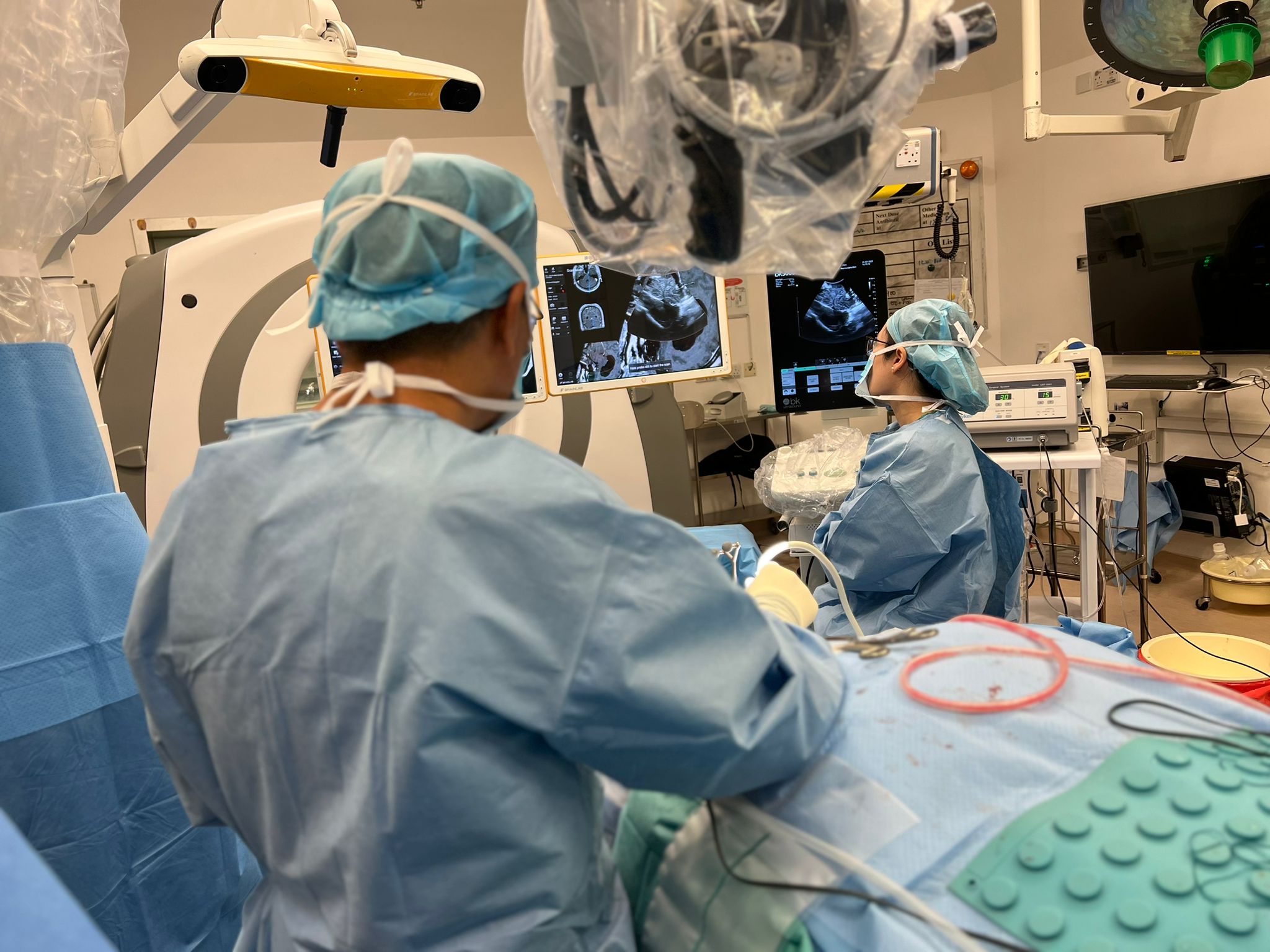
Neuroanesthesia Fellowship
Overview
As one of the prominent Neurosurgical University Teaching Hospitals and Trauma Centres in Hong Kong, The Department of Anaesthesia and Intensive Care at Prince of Wales Hospital, in affiliation with the Chinese University of Hong Kong, performs 700-800 neurosurgical cases each year. In collaboration with the neurosurgical team, we provide anaesthesia and quality care for state-of-art neurosurgical procedures for a wide variety of operations – ranging from intraoperative CT to awake craniotomy.
Our wide range of neurosurgical subspecialties include:
- Transsphenoidal Pituitary Surgery
- Posterior Fossa Surgery
- Skull Base Surgery
- Awake Craniotomies
- Open Neurovascular Surgery (Aneurysms, AVMs, Intracranial Bypass procedures)
- Interventional Neurovascular Surgery (Stenting and Embolizations)
- Functional Neurosurgery (DBS, Epilepsy)
- Neurotrauma Surgery
- Complex Spinal Surgery
- Robotic Spine Surgery
- Surgery requiring Intraoperative Imaging (intraoperative CT)
Fellowship opportunities:
During the 12-24 month fellowship, fellows will take part in providing anaesthesia for the above neurosurgical procedures under the guidance of a passionate team of neuroanaesthetists. Our fellows will not only gain experience in perioperative management of such cases, but also have opportunities to learn from Intraoperative Neuromonitoring technicians in the operating theatre. For fellows interested in Neurocritical care, they can also gain experience in our Intensive Care Unit. Furthermore, our fellows will have the opportunity to collaborate with a multidisciplinary team throughout the training, engage with various stakeholders of our neurosurgical program, and leave the program with the skills required to develop or lead such a service.
The fellow will be provided with the opportunity to take part in weekly continuous medical education activities, present at academic meetings, as well as embark on a quality improvement/audit or research project.
What to expect:
Successful candidates can expect on average 2 days of elective neurosurgery each week with other days being rostered to general surgical lists and on-call duties. Fellows are also expected to provide 3-4 calls per month. Local medical and nursing staff are fluent in English and are able to help with translation and interpretation if needed. Our fellows will be provided with protected time to participate in quality improvement and research projects, and to provide teaching for anaesthesia trainees. All fellows are allocated mentors throughout the program.
